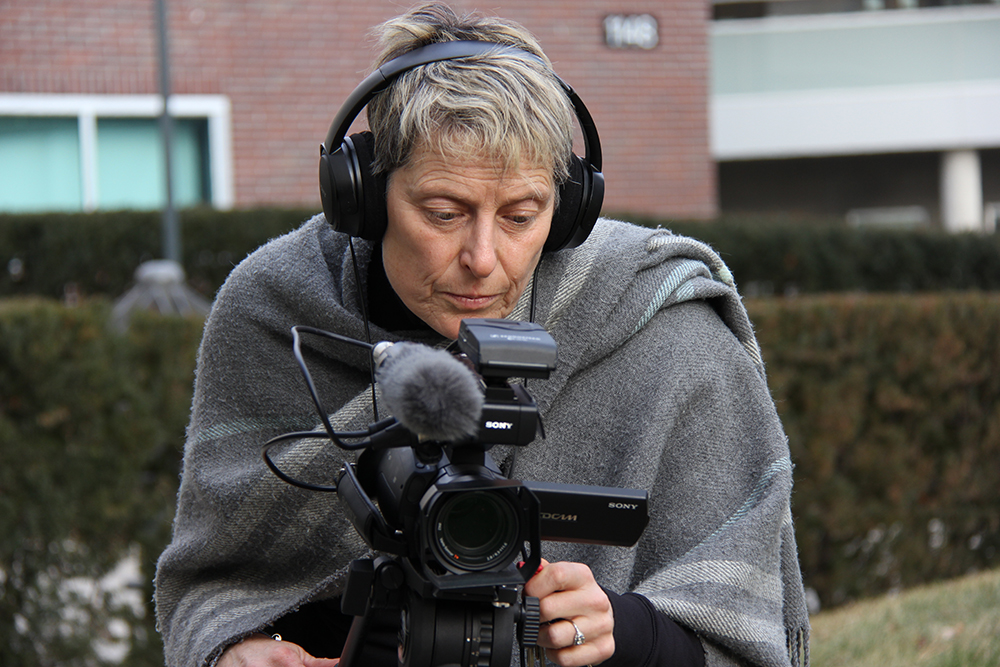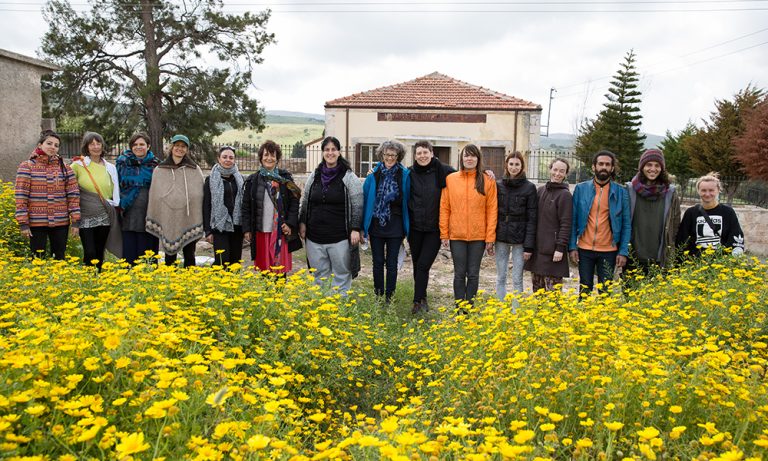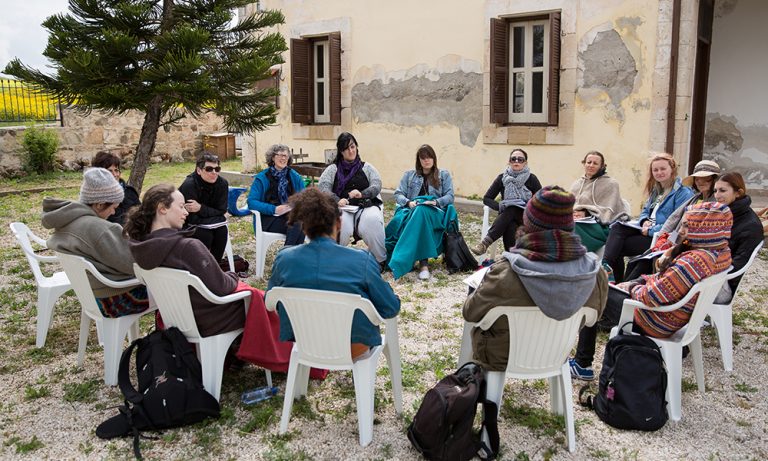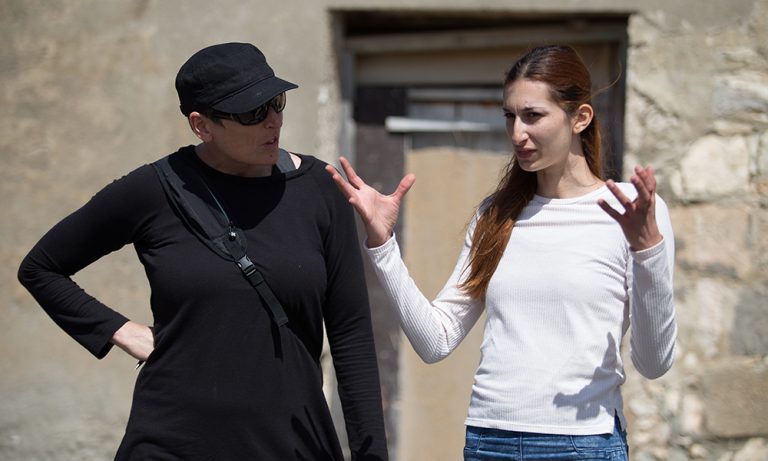
Denise Kenney working on a film project
Denise Kenney is an educator, filmmaker, eco-artist, and performer. She has been a faculty member at UBC Okanagan since 2007 teaching Interdisciplinary Performance in the BFA and Bachelor of Arts programs, and is currently the Department head for Creative Studies.
Denise shared some insights on her teaching and research practices here at UBC Okanagan.
How did you know you wanted to be a professor?
I have always taught people in tandem with my career as an artist. I love teaching. When the opportunity came up to take on a full position within the Department of Creative Studies, I knew I had found a home for my interdisciplinary practice and teaching.
What most excites and challenges you about your field of work?
My work excites me because I believe it is vital. I always ask my students, “If art and artists are the after-the-serious-stuff “fluff”, then why do so many oppressive regimes target artists? The way we converse with our communities is through our art. We matter. Our students matter.
I work in a challenging field because my research focuses on live performance and community engagement that asks people to connect beyond the printed page or digital screen. In the face of social media and digital communication, the live body and getting people together in the same place and the same time is inconvenient and challenging. I am always fighting for opportunities for intimate, embodied and creative exchanges in my teaching and in my research.
Explain what your research is about.
My work is based on the understanding that climate change and sustainability are cultural issues and that scientific narratives alone will not enact the kind of change we need to mitigate climate change and to make ourselves resilient in the face of what is to come.
We are no longer simply trying to avert a crisis, which suggests that the crisis will pass, but rather trying to build resiliency in our communities and our institutions. Scientists have done their job. Now the story tellers, artists, critics, creative thinkers, provocateurs and visionaries in the humanities and fine arts are uniquely well-situated to participate in shaping our response to this overwhelming data.
We can help our students and our communities shift our cultural coordinates and re-imagine ways of belonging and surviving as we navigate our uncertain future. This is why we are relevant. The good news is that we already know how to do this and our students are taking up the torch.
What kind of learning experiences do you lead outside of the classroom?
I do a lot of work out in the community in my teaching and in my research. My students have performed or facilitated projects in Europe, the U.S., and Canada and have likewise presented at conferences in all of these places.
My goal as an educator is to involve my students as much as I can in my own research projects, to support them in theirs, and to provide for them opportunities for real-world experience. Over the years, my students and I have worked with the City of Kelowna, Westbank First Nations, the Living Positive Resource Centre, Inspired Word Cafe, the Kelowna Art Gallery, the Okanagan Regional District, School District 23, the Woodhaven Nature Conservancy, and a number of artists and scholars locally, nationally and internationally.
What do you enjoy about living here and working at UBC Okanagan?
Because UBCO has a small campus but is still a highly regarded university in terms of research and teaching, it has the best of both worlds. This is what I love about working here. I am always being challenged in my research and teaching, but I also have close contact with my students and faculty, not only in my department, but across the whole campus.
The Okanagan valley is a landscape of lakes, sagebrush, saskatoon berries, and suburbias crowding out ponderosa pines. Even though much of my education and professional work was done in larger urban centers like Paris or Vancouver, I have come to love the smaller community for its intimacy, proximity to nature, and enthusiasm. Kelowna city council has viewed films made by my students; the parks have welcomed our art projects; the international airport is ten minutes away, and my bike ride to work is gorgeous. Kelowna is growing, and I hope that our students will graduate from UBCO and help it grow for the better.

Denise Kenney & Nancy Holmes at Cyprus Sites Embodied, 2017

Denise Kenney & Nancy Holmes in Cyprus, 2017

Denise Kenney working with a Cypriot dancer in Androlikou